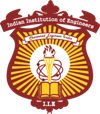About
B.Tech. Instrumentation and Control Engineering – Stands for Bachelor of Technology in Instrumentation and Control Engineering. Typically, a B.Tech. is for four years, minimum eligibility for which is an intermediate (10 + 2) in science. Subjects usually studied under this degree are Engineering Mathematics, Fundamentals of Instrumentation, Linear Integrated Circuit, Industrial Management, Application Programming, Measurement Basics, Metrology, Transducers, Mechanical Measurements, Industrial Instrumentation, Analog Electronics, Digital Electronics, Signals and Systems, Electrical and Electronic Measurements, Control Systems and Process Control etc
Career
Instrumentation engineers find employment in industries which improve efficiency, stability and safety of automated processes. The industrial sectors include Public/Private firms, R&D organizations, Steel plants, Cement manufacturing companies, Thermal power plants, Chemical companies and similar industries. Apart from the above instrumentation engineers also find employment in companies that utilize specialized instruments for their day-to-day operations..
Job Prospects
Engineering is one of the most rewarding and promising careers for young aspirants. In today’s world engineers probably have a wider choice to work, and greater variety of jobs, than is possible in any other profession. There is vast scope for engineers in areas such as polymer technology, textile technology, communication, computers, automobile, thermal engineering and so on. There are lots of job opportunities available in India as well as in foreign countries.
Graduates after completion of their course in engineering can seek employment opportunities in almost all related production industries, hospitals and research institutes. They could also seek employment in the government sector as well, in various arms of state and central government. Professionals in this career can also opt for teaching jobs in universities and colleges. Aspirants can also expand their skills and knowledge through pursuing more courses.
Remuneration
The remuneration of a professional mainly depends on the factors such as the company, job profile, qualification, skills and work experience. A skilled engineer employed in private sector can expect income around Rs. 15, 000 to Rs. 20000 every month in the beginning stage. After gaining experience one can earn more than 40,000 per month. Whereas in government sector there are specific pay scales for of the various state and central governments although with small variations from state to state. M.Tech degree holders from reputed colleges can earn handsome salary.
Course Structure
Part-I
| Subject Code | Subject Name | Download |
|---|---|---|
| 1.1 10001 | ENGINEERING MATHEMATICS | Download |
| 1.2 10002 | APPLIED PHYSICS | Download |
| 1.3 10003 | APPLIED CHEMISTRY | Download |
| 1.4 10004 | COMMUNICATION SKILL | Download |
| 1.5 10005 | ENGINEERING DRAWING | Download |
| 1.6 10006 | COMPUTER FUNDAMENTAL | Download |
| 1.7 10007 | TIME MANAGEMENT | Download |
| 1.8 10008 | MANUFACTURING PROCESS | Download |
| 1.9 10009 | ENGINEERING MECHANICS | Download |
Part-II
| Subject Code | Subject Name | Download |
|---|---|---|
| 2.1 30251 | STRENGTH OF MATERIALS | Download |
| 2.2 30252 | FLUID MECHANICS | Download |
| 2.3 30253 | MATERIAL SCIENCE & ENGINEERING | Download |
| 2.4 30254 | WORKSHOP TECHNOLOGY | Download |
| 2.5 30255 | ENVIRONMENTAL ENGINEERING | Download |
| 2.6 30256 | METROLOGY | Download |
| 2.7 30257 | TECHNICAL ENGINEERING DRAWING | Download |
| 2.8 30263 | THEORY OF MACHINES | Download |
| 2.9 30264 | THEORY OF ELECTRICAL ENGINEERING | Download |
| 2.10 30265 | FLUID POWER & TRIBLOGY | Download |
| 2.11 30266 | INDUSTRIAL ECONOMY & MANAGEMENT | Download |
| 2.12 30267 | AUTOMOBILE ENGINEERING | Download |
| 2.13 30268 | MANUFACTURING TECHNOLOGY | Download |
| 2.14 30269 | INTERNAL COMBUSTION ENGINE | Download |
| 2.15 30270 | CNC MACHINE | Download |
| 2.16 30271 | REFRIGERATION & AIR CONDITIONING | Download |
| 2.17 30272 | POWER PLANT ENGINEERING | Download |
| 2.18 30273 | THERMAL ENGINEERING | Download |
Project Work
Candidates are required to submit a Referee / Project Report to complete the requirement of the Technician Membership Examination(TMIIE-DIPIIE-DMIIE).
A candidate of Technician Membership Examination(TMIIE-DIPIIE-DMIIE) can take up submission of his report only after he has obtained a pass in Part-I of TMIIE-DIPIIE-DMIIE Examination and only after he/she has appeared and obtained 40% marks in at least 5 subjects of Part-I of TMIIE-DIPIIE-DMIIE Examination.
Project Report / Referee Report
Each candidate appearing for Technician Membership Examination under the scheme of examination as approved by Govt. of India, is required to submit the Project Report in bound volumes.
Project Report detailed requirements and Project Report applications form is given in Institution website .The Project Report Application should be submitted with a fee.
Final pass Certificate will be issued only after Project Report is approved. Candidate is also required to pay certification fee and submit experience certificate for minimum period of 3½ years on employer’s letterhead.
8367f0a2-13e0-47df-9fee-fa91a989d05f.docModel Format for submission of Refree/ project report for TMIE-DIPIIE-DMIIE Examinations .
Note:
Academic Member needs to undertake Six months practical training from A.I.C.T.E or applicable Polytechnic/College.


